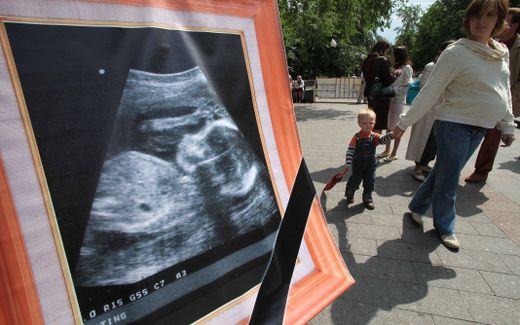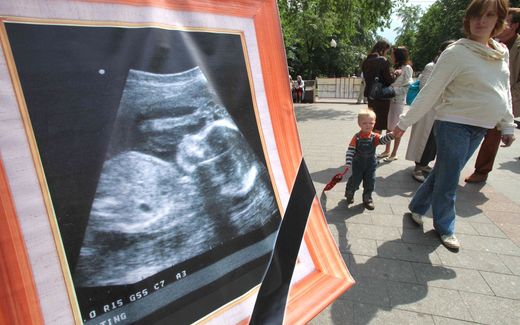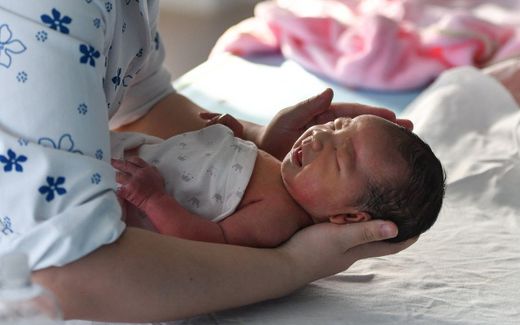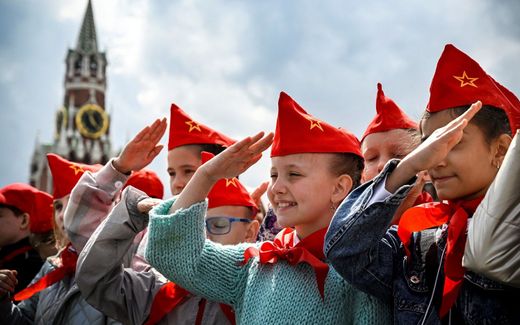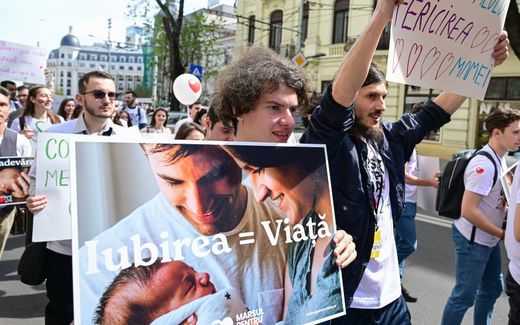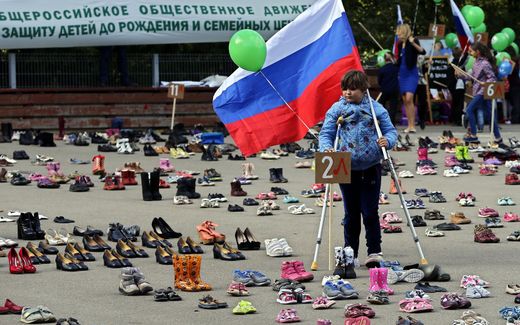Banning abortion seems easy, but it is difficult for Russia
23-01-2025
Eastern Europe
William Immink, CNE.news
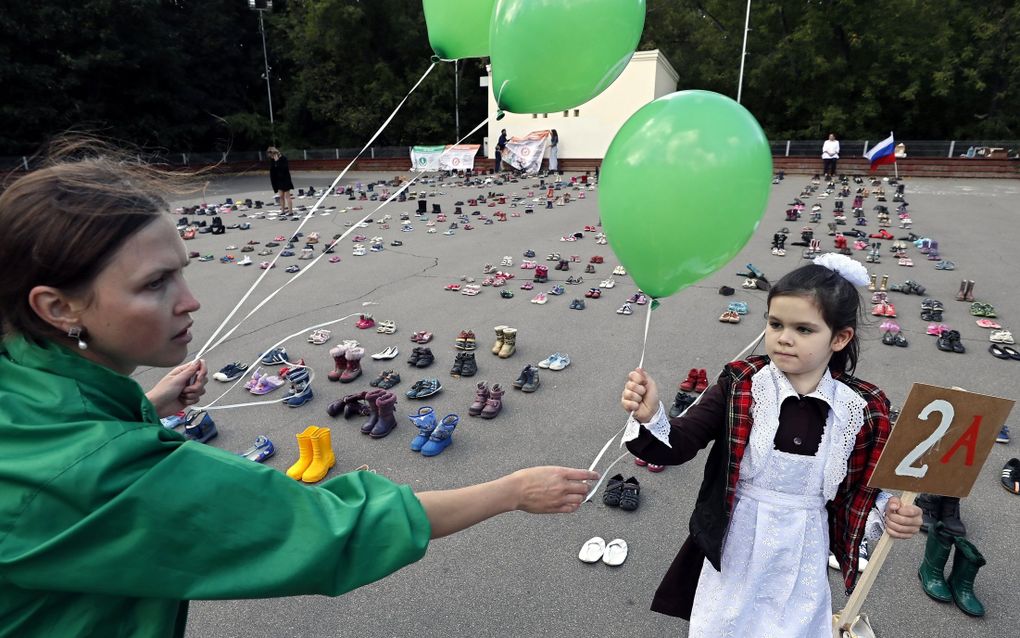
A Russian woman and a little girl participate in an earlier public action themed, 'In defense of human life from the moment of conception (They could go to school)', in Moscow, Russia. Photo EPA, Yuri Kochetkov
Eastern Europe
Nowhere on the world abortion is so free as in Russia. This has been so for many decades. With 2024 showing dire demographic statistics, time has come to change this abortion culture. This is no easy task.
“Mommy, please don’t kill me”, those are the last words in a trailer of a drama film that appeared in Russian theatres this fall. It is a tear-jerking film that offers many ways to handle an unwanted pregnancy other than terminating it.
The film is called “Mom’s Letter”. It is produced by Spas TV, the federal channel associated with the Russian Orthodox Church. The goal of the film is to change the nation's stance on abortion.
Career
Even back in the early Soviet years, in the 1920s, abortion was legalised in the country, in order to give women a chance to have a career. Most of the left-wing policies from the communist era are still in place.
Statistics say that the annual number of terminated pregnancies are still at 506,000 in 2022. This number is down from over 1.1 million in 2010 but still is much higher than amongst women in many Western European societies.
Where there are only 7 abortions for every 1,000 women in many Western countries (like Germany, the Netherlands and Belgium), Russia tops this figure with as many as 13 abortions per 1,000 women, as international overviews show.
Stricter laws
It is not difficult for Russian women to end a pregnancy. At state hospitals Russian women can terminate a pregnancy for free. Private clinics offer paid services. Here there are no waiting lines and service is often better than in the state medical centres.
Even abortion drugs are always easy to come by: women who want to end their pregnancy in an early stage can buy these pills without a prescription.
Nonetheless, recently the Russian government has made some changes to these laws. Aborting pills have become harder to come by in the last years. Since September 2023, pills like misoprostol and mifepristone are not for sale without prescription anymore. Critics of those changes say these pharmaceutical products should be available because in small doses they can be used as “emergency contraception”.
Regional bans
Furthermore, authorities in some Russian regions started making changes in local legislation. In Nizhni Novgorod, for instance, local lawmakers tried to introduce a law that bans abortions in private clinics. Because of contradictions with the federal legislation, however, the proposal was withdrawn.
In many other regions, lawmakers tried to put similar laws into place. Most regional drafts on abortion bans in private clinics did not succeed.
Even though legislation did not pass, there are regions where private clinics understood the message. In the Republic of Tatarstan, for example, about thirty private clinics which offered abortion, were asked to quit terminating pregnancies. Nineteen of them decided to stop performing abortions. The same happened on the Crimean Peninsula, in the Kursk region and at least in sixteen other Russian regions.
Many of these Russian regions have already passed legislation that prohibits Russians to pressure women into getting an abortion. This law is supposed to protect women from pressure from their husbands or employers. In the city of Nizhni Novgorod, incitement of abortion can now be punished with a fine of 200,000 Rubles (roughly 1,900 Euros).
Liberal critics
According to Meduza, a Western backed media platform, says that the Russian authorities are trying to ban abortion in private clinics in order to have more control over the question. “It is more difficult to defend your rights in the state-run hospitals”, the platform writes. US funded media in Russian language like the website Current Time write about “reproductive violence” or “pressure to reproduce”.
Many of these liberal pro-abortion news outlets fear an all-out abortion ban, and say this is “horror”. Meduza writes a ban will bring Russia back to the “Middle Ages”.
Most of these opposition platforms are funded by Western NGOs and are officially marked as “foreign agents” in Russia.
“Murder”
Many Russians would say that change is necessary. The Russian Orthodox Church has become more and more assertive in labelling abortion as “murder”. In some regions activists from the Orthodox Church are sending pregnant women a letter from the Russian Patriarch, Kirill. This project is called “Hello, Mother” and tries to keep doubting mothers from aborting their children by supporting them financially, socially and morally.
President Vladimir Putin agrees that the demographic tend is worrisome. Still, he thinks it is important to “act very carefully”. According to Putin the solution to abortion lies not only in legislation, but also in social support. If economic conditions improve, people will have more children, the President assumes. At the same time, Putin does not want to infringe on the “rights and freedoms of women”.
Back to the film “Mom’s Letter”. More and more of those initiatives from civil society and regional bans steer up the debate. Those may be the start of a shift in the culture.
According to a survey of polling institution VTsIOM, the number of Russians that consider abortion unacceptable increased from 4 per cent in 2016 to 13 per cent in 2022 In a country where abortions were the most common ways of contraception, it seems the culture is slowly changing.
Related Articles

